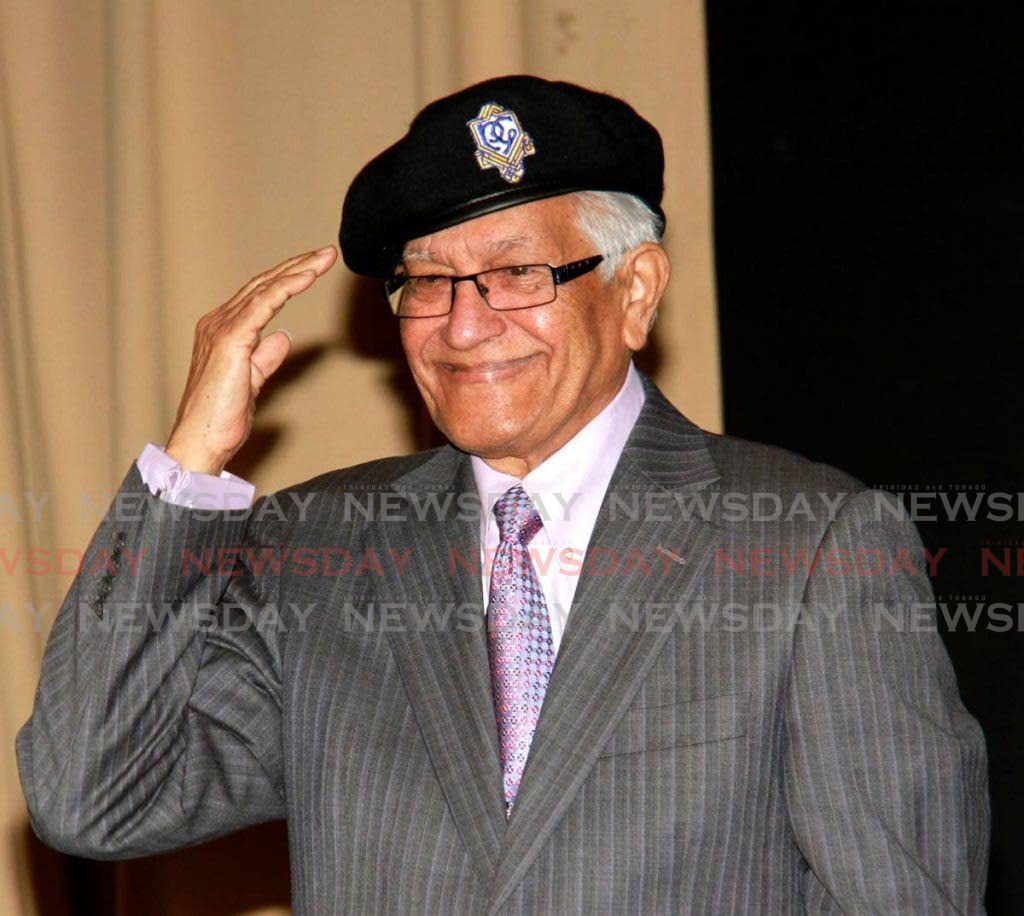Basdeo Panday’s many roles

BASDEO PANDAY’S life embodied two visions of our nation. One was sacred, the other profane. Few have left behind a legacy as contradictory.
If the former prime minister, who died on Monday at the age of 90 after an unspecified illness, was initially trained in the art of acting, many were his roles indeed.
For some, he was a hero. For others, a villain. In his lifetime, he was likened to a fox and a lion. But his long public career demonstrated he was a chameleon.
Whatever he was, both his friends and enemies agree on one thing: he was larger than life.
Born to farmers in Saint Julien Village, Princes Town, in 1933, Mr Panday wielded three qualities that defined him.
The first was a propensity for hard work. He attended New Grant Government and then Presentation College, San Fernando before working a series of odd jobs that included a stint as a sugar cane worker at Caroni (1975) Ltd and as a notetaker for Noor Hassanali, later President Hassanali, in the magistracy. While in England, he was a labourer, a clerk and an electrician as he furthered his studies.
The second quality was charisma. Much has been said of his wit. Few politicians were as adept as Mr Panday when it came to picong and wordplay. They fed his appeal, alongside his trademark smile. As a politician, he was aware of the power of image, from his silver hair to the red beret he briefly wore.
But if you were not in Mr Panday’s good books, his charm could quickly be replaced with a third quality: a tendency to be acerbic. The best example: when asked by the media to comment on the 1990 insurrection, which saw ANR Robinson and his government held hostage, Mr Panday retorted, “Wake me up when it’s over.”
“Politics has a morality of its own,” a statement he plundered from Machiavelli, was a hypothesis Mr Panday tested more than any other.
Like Donald Trump, whom he brought to Trinidad in 1999, there was a time the former prime minister’s public life consisted of his moving from court to court on a string of corruption allegations. A conviction was quashed and never retried. Other matters, related to the Piarco airport project he oversaw as PM, now outlive him.
Such matters stand uneasily alongside Mr Panday’s considerable achievements. As a trade unionist, he lobbied on behalf of children. He formed several major political parties and entities. And he was the country’s first prime minister of East Indian descent.
The latter milestone, which occurred in 1995, was not just an achievement for East Indians, but also for the entire country. For a brief moment in the late 1990s, before his downfall, Mr Panday was the greatest embodiment of national unity, no small feat for a politician.

Comments
"Basdeo Panday’s many roles"